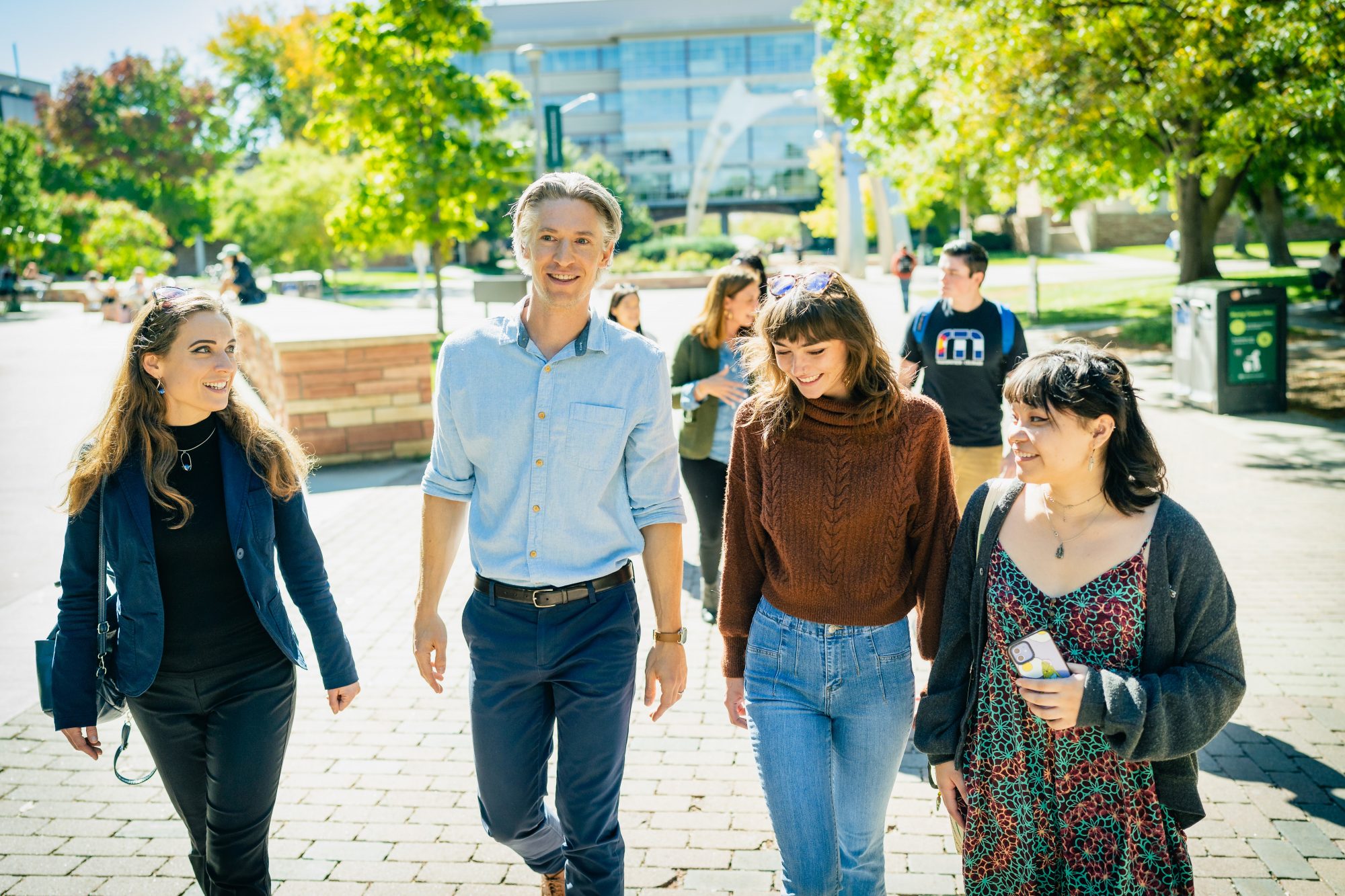
About Us
About Us
Welcome to the Department of
Communication Studies
We are a caring and supportive community of teachers, scholars, and students who are passionate about communication’s centrality to our lives.
That is why we study and teach communication from multiple perspectives and consistently explore field-defining research. The innovative scholarship and teaching practices our faculty, instructors, and graduate students pursue and pioneer routinely receive regional, national, and international recognition.
Our Approach to the Study of Communication Is Limitless
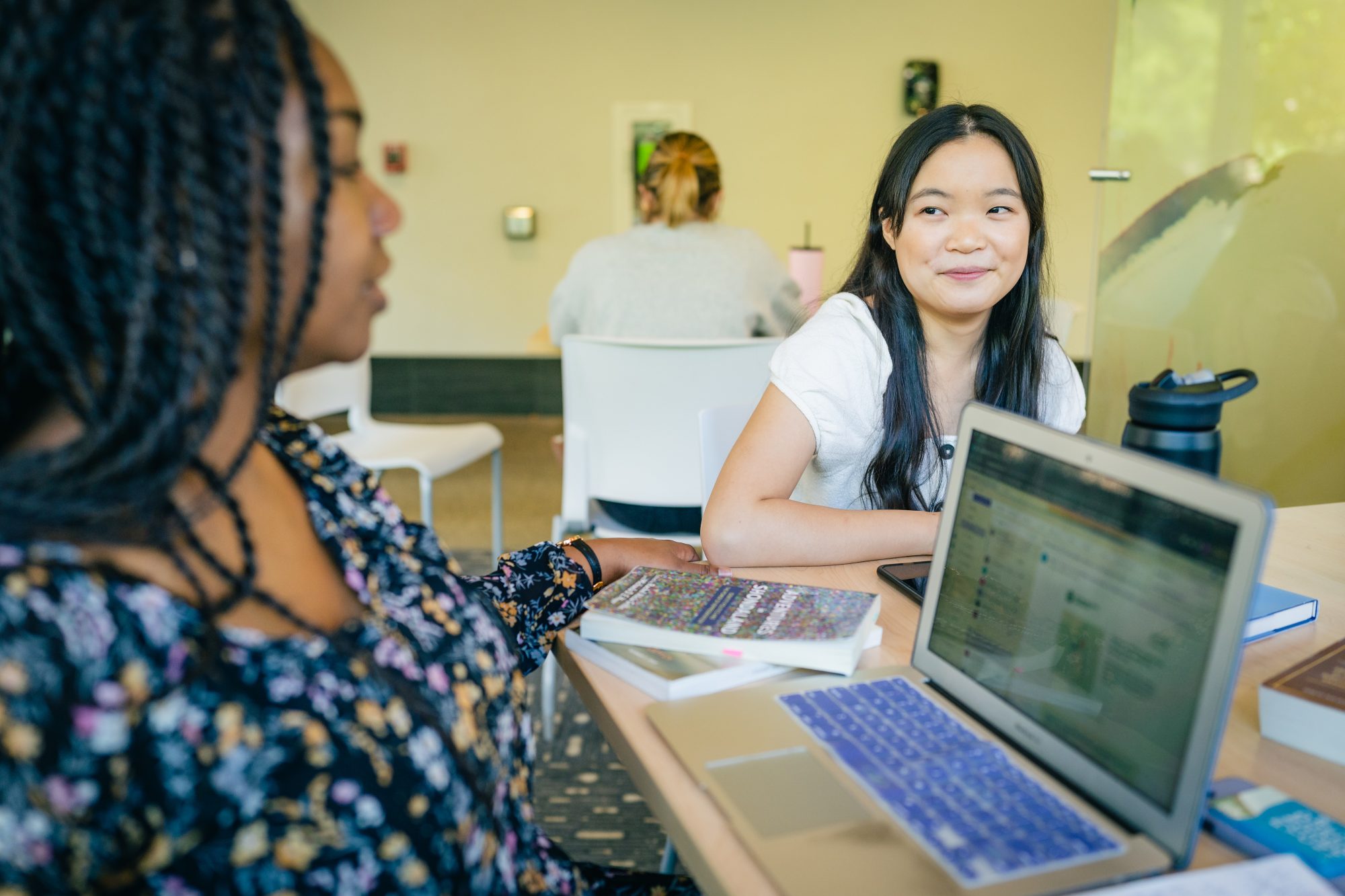
We study communication in interpersonal, organizational, and cultural contexts.

We explore the history, theory, and criticism of media and film.
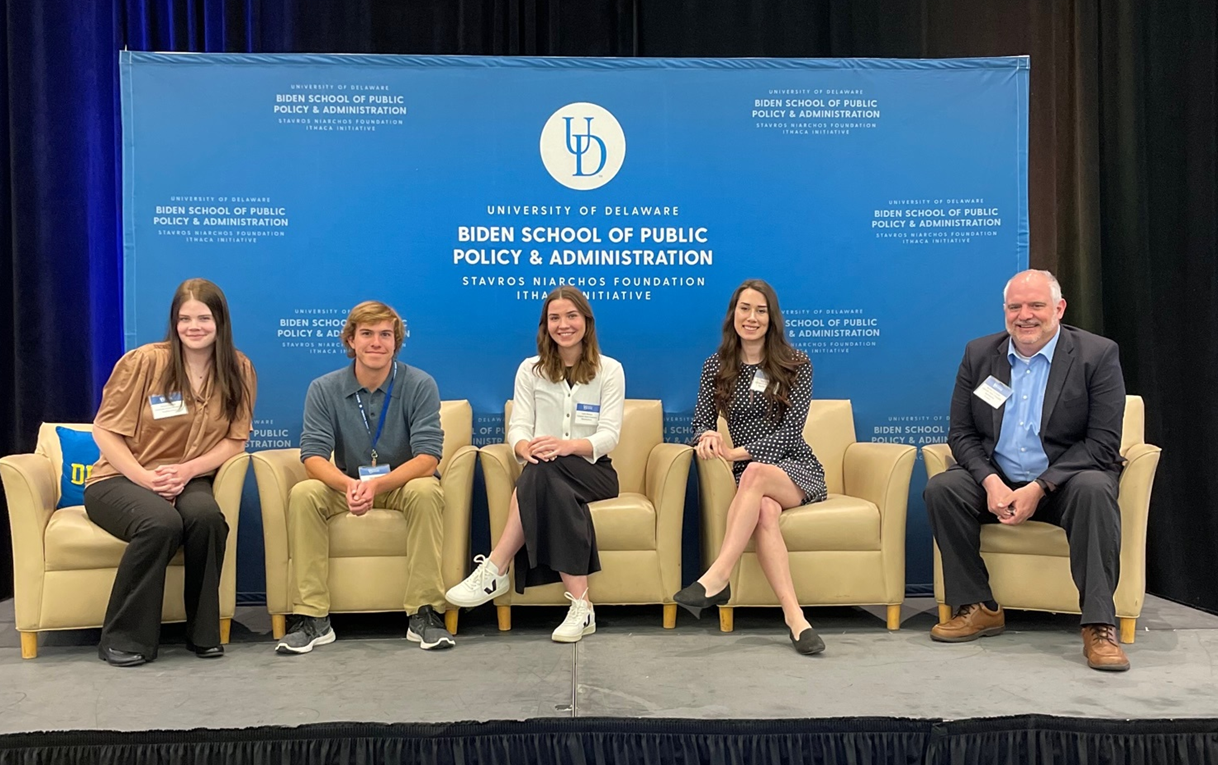
We investigate the nature of public and political discourse.
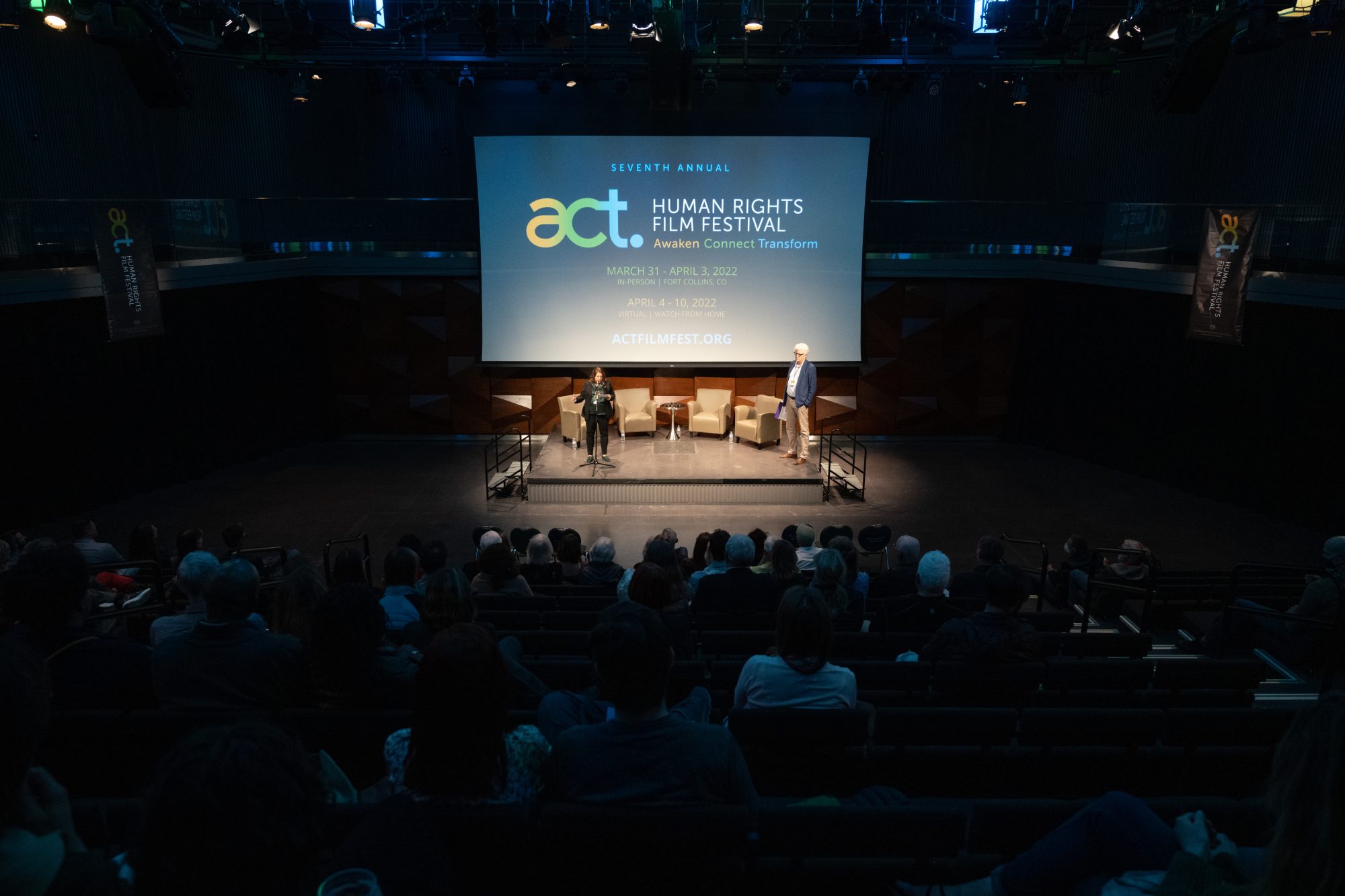
We bring the intersecting power of story and film from around the world to northern Colorado and beyond.
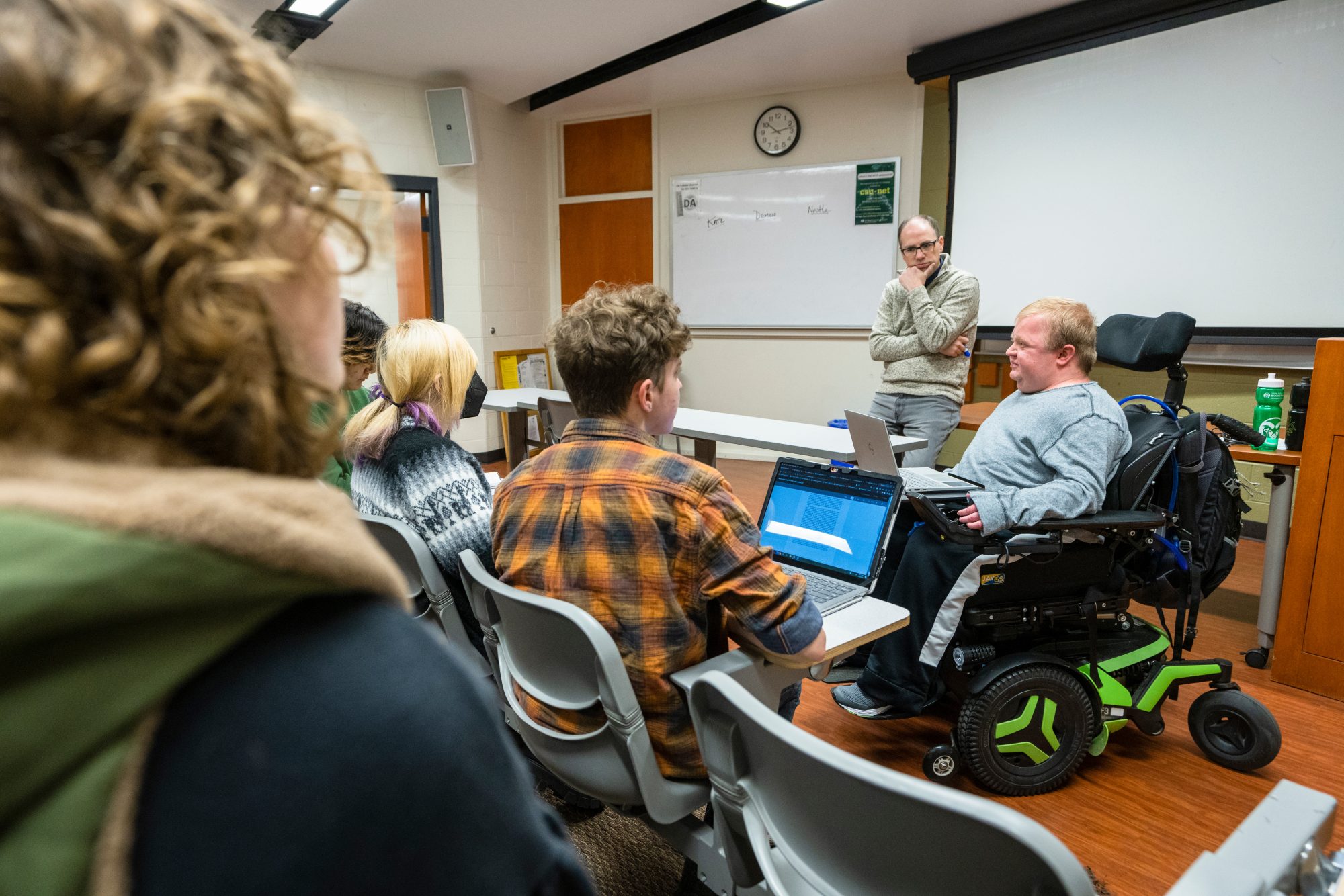
We advocate for a public process in which all are welcomed, valued, and affirmed.
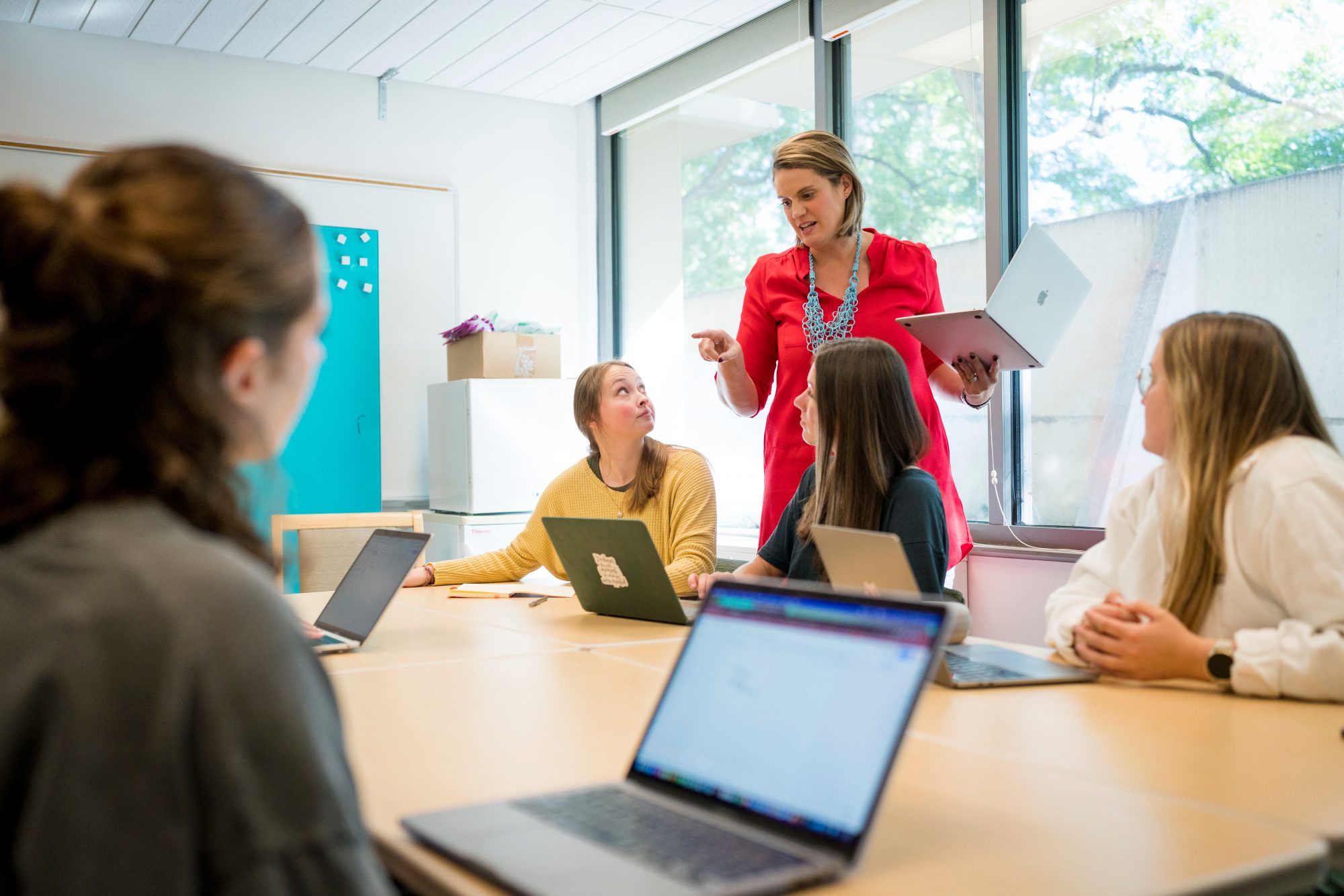
Our Values
There is no better place to find your connection—whether academic, personal, or professional—than with us.
Our faculty infuse the classroom with teaching practices that honor multiple ways of knowing
We program a rich array of coursework directly engaging diversity in text, identity, culture, positionality, and history
Our undergraduate, graduate, and faculty research consistently addresses power, identity, and agency
We uphold Colorado State University’s Principles of Community
We join the campus community in acknowledging the history of the land that comprises CSU’s campuses
Our People
Meet the people who drive our diverse and innovative programs, pursue academic and teaching excellence, support and advance our endeavors, and make us proud.
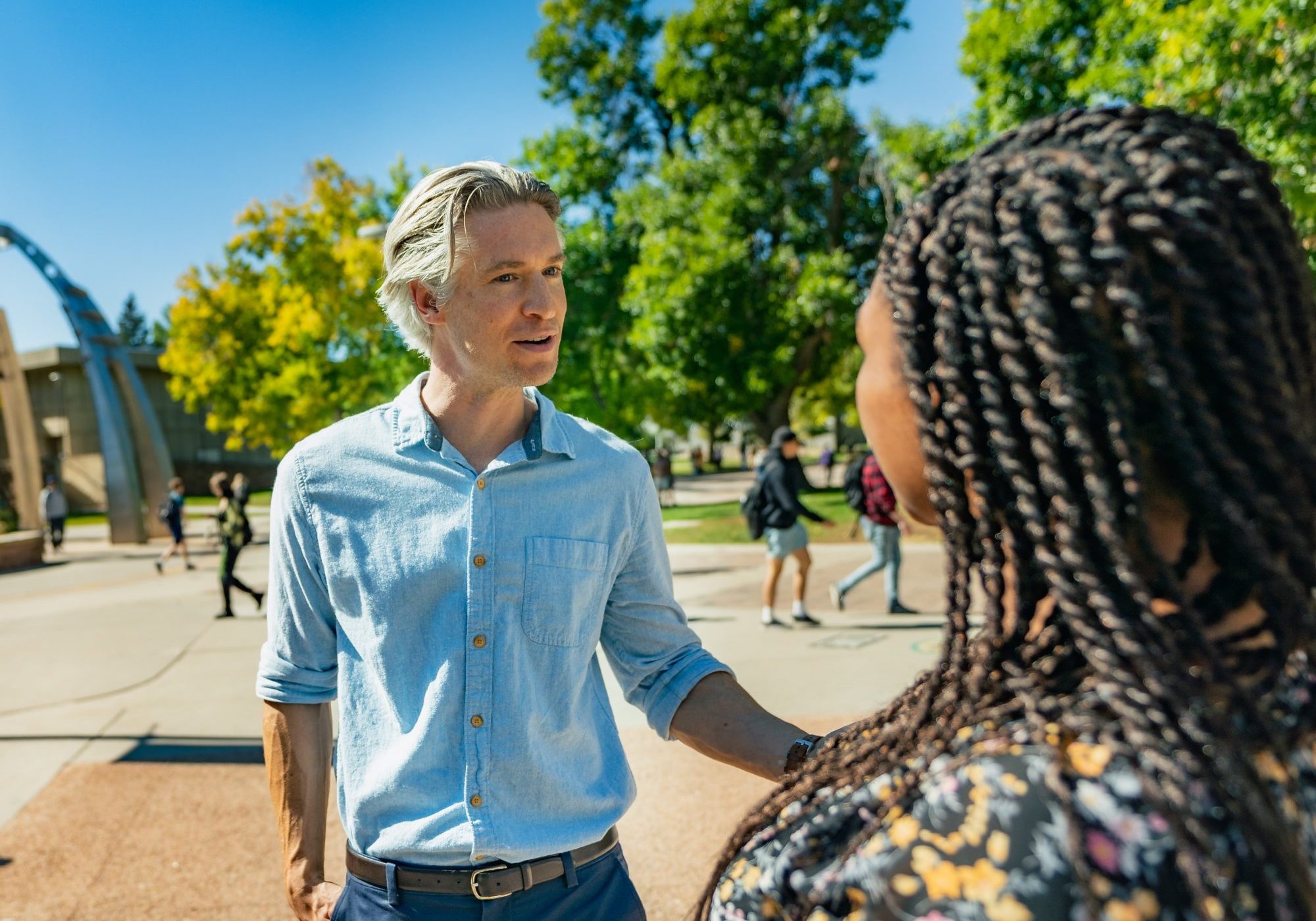
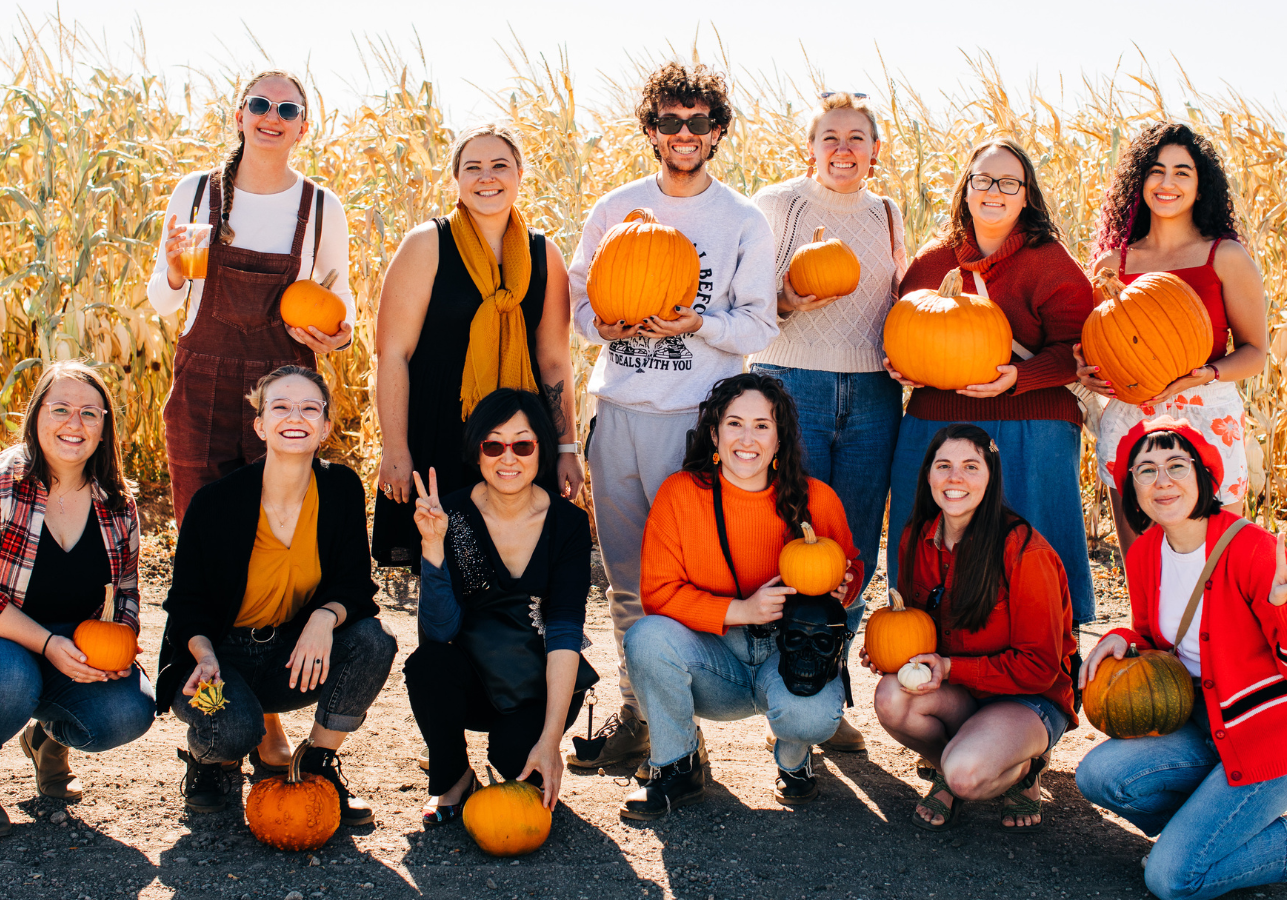
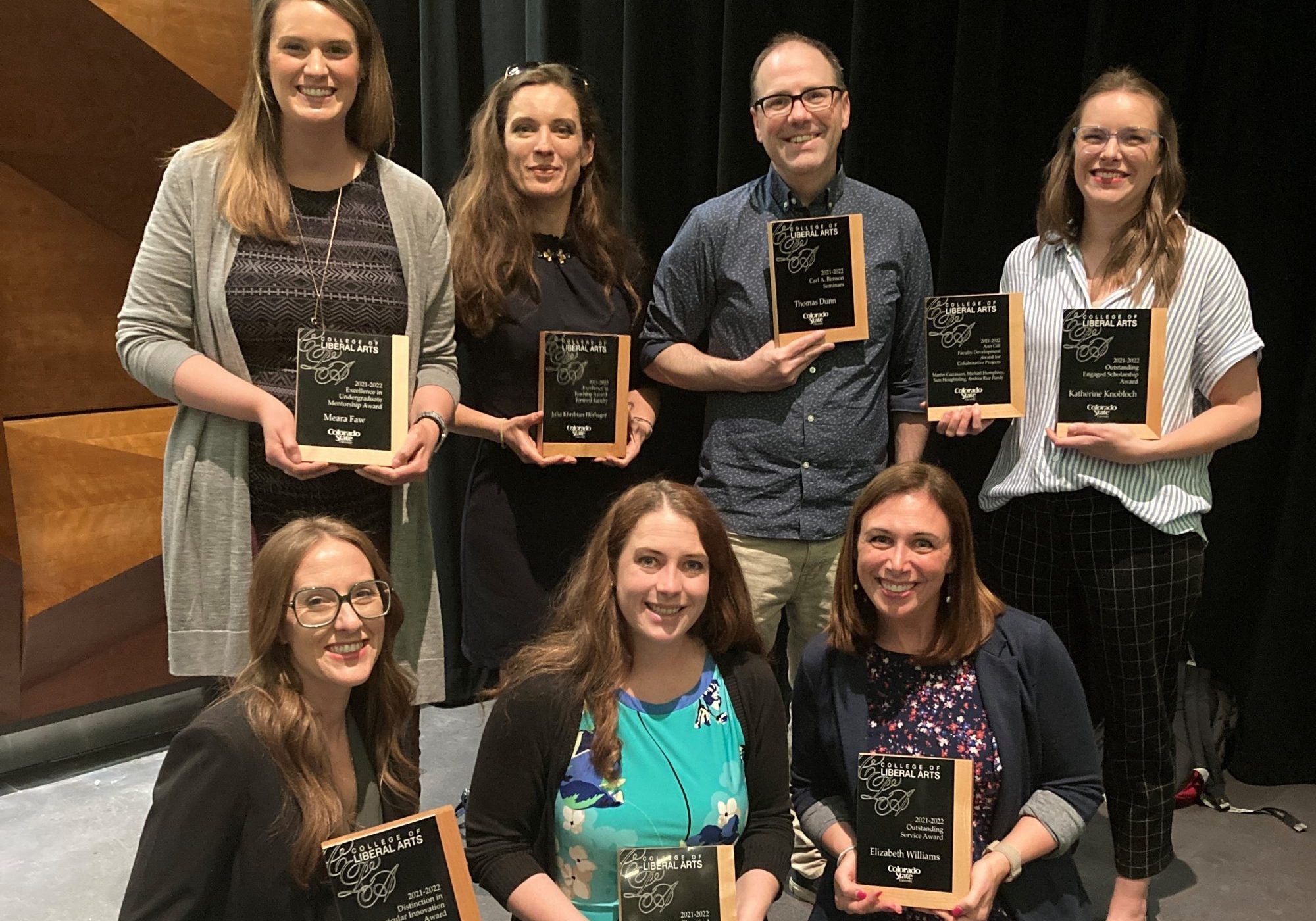
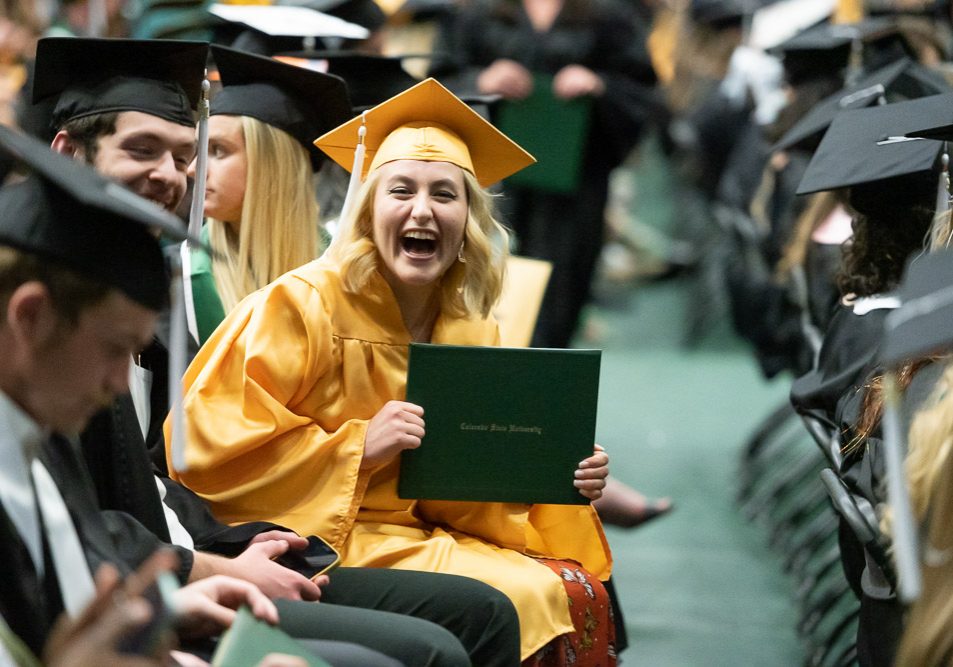
Our Programs
The Department of Communication Studies offers four degrees:

B.A. in Communication Studies
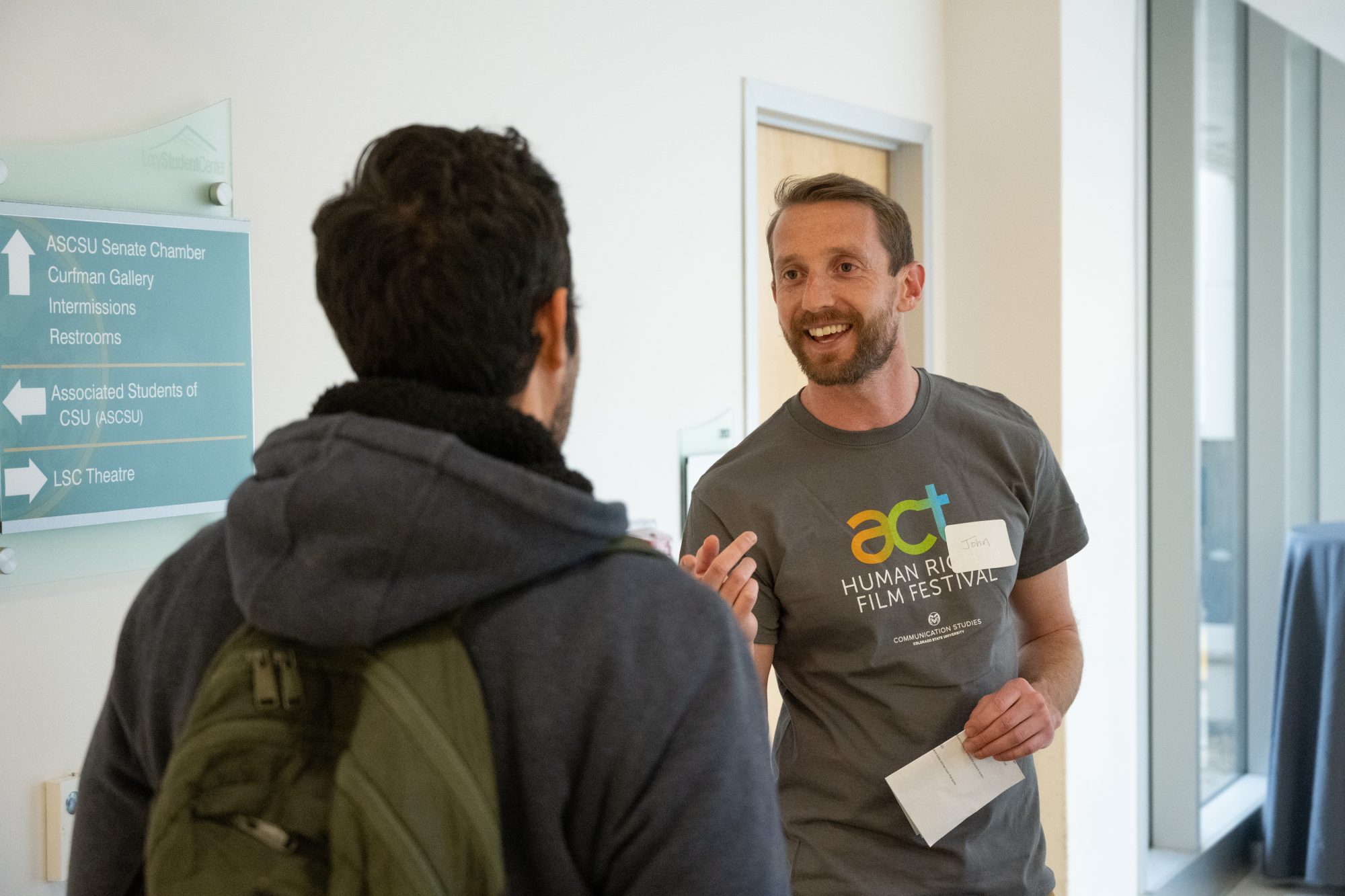
M.A. in Communication Studies
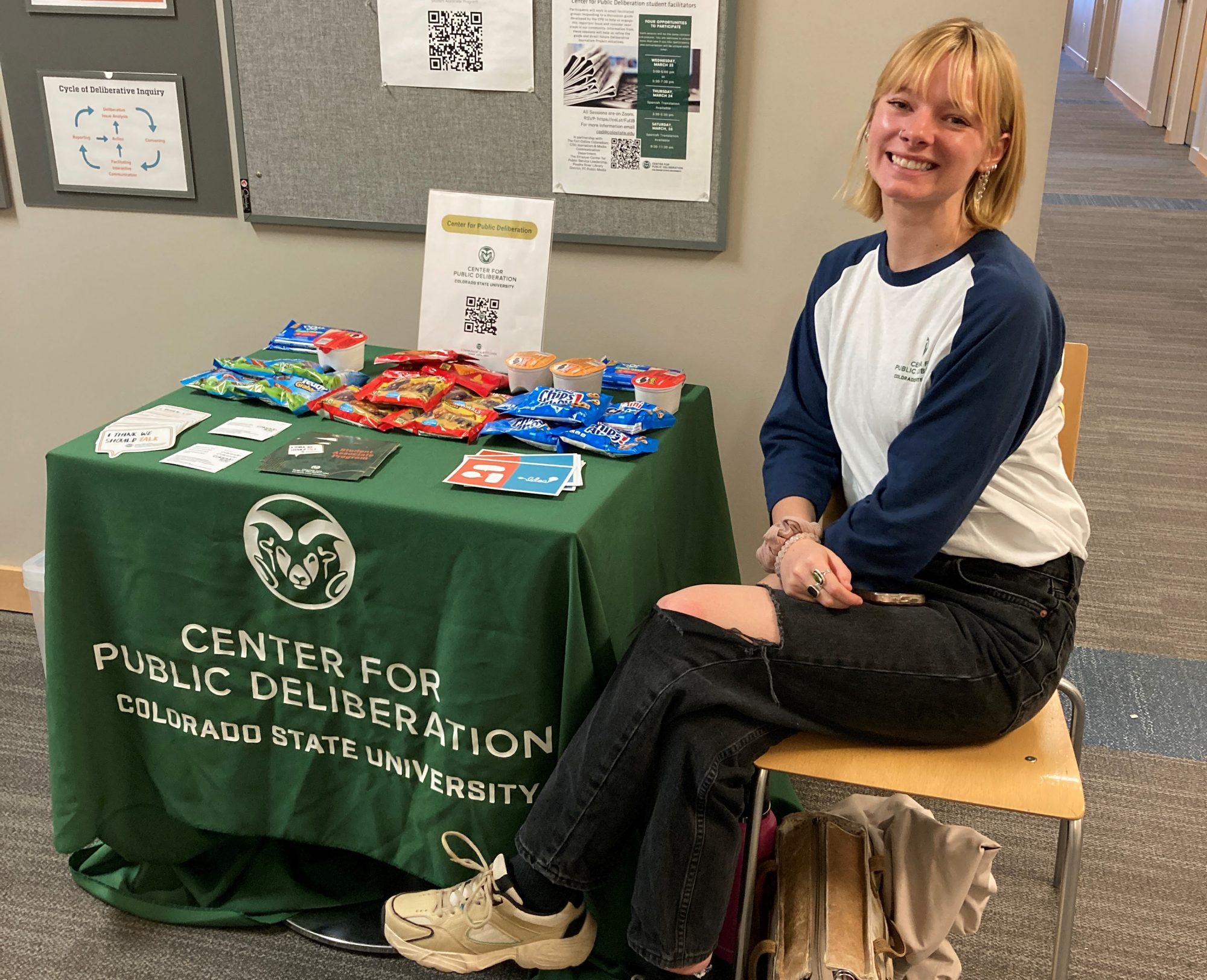
M.A. in Communications, Deliberative Practices Specialization
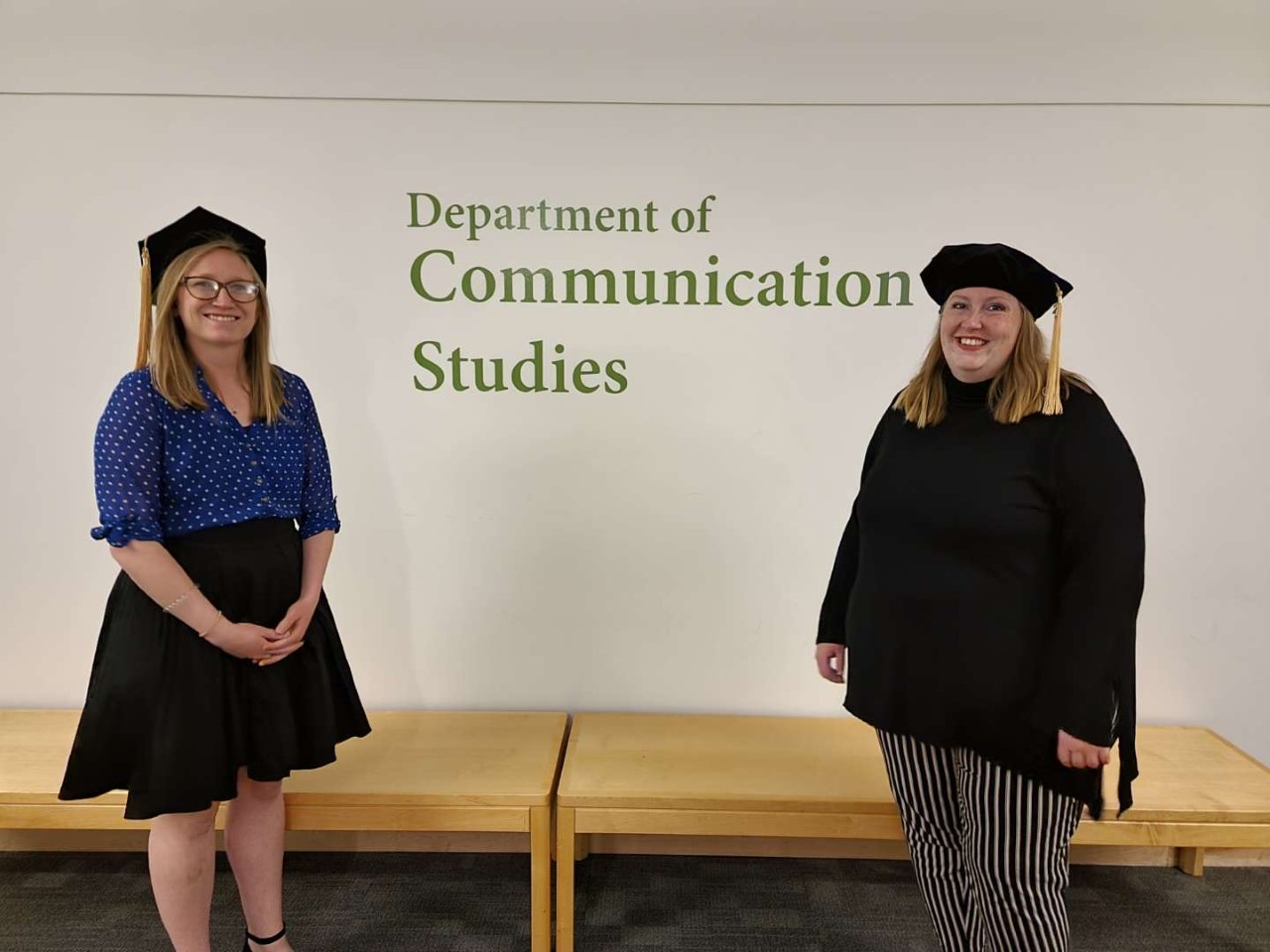
Ph.D. in Communication
Our History
In 1879, rhetoric was among a handful of courses taken by the inaugural five-student class of Colorado Agricultural College. Today, it is one of three main areas of study in the Department of Communication Studies.
The “speech arts” – rhetoric, debate, and public speaking – were originally housed in the Department of English (est. 1939). In 1951, they finally found their own footing as a standalone degree named Speech Arts, followed by the addition of a Master of Arts degree in 1961, and the establishment of the Department of Speech Arts in 1962.
In 1970 our named changed to the Department of Speech and Theatre Arts, then again in 1984 to Speech Communication. Across that time and for a few more decades we were entrenched almost as much in broadcasting as in rhetoric. We had also begun to develop our expertise in relational and organizational communication.
In 2008 we became the Department of Communication Studies when we separated the history, theory, and criticism of film and media from broadcast media production, which was folded into the Department of Journalism and Media Communication.
With that shift we had three official areas of study. Today we know these as film and media studies, relational and organizational communication, and rhetoric and civic engagement. Each area of study produces scholarship that engages with our communities, from the Center for Public Deliberation and the ACT Human Rights Film Festival to the Queer Memory Project of Northern Colorado and the Research in Interpersonal Communication Collaborative.
These extensions of our programmatic expertise have contributed to the development and success of our new Ph.D. in Communication, which launched in the fall of 2017. In spring 2021, we graduated our first-ever cohort of doctoral candidates.